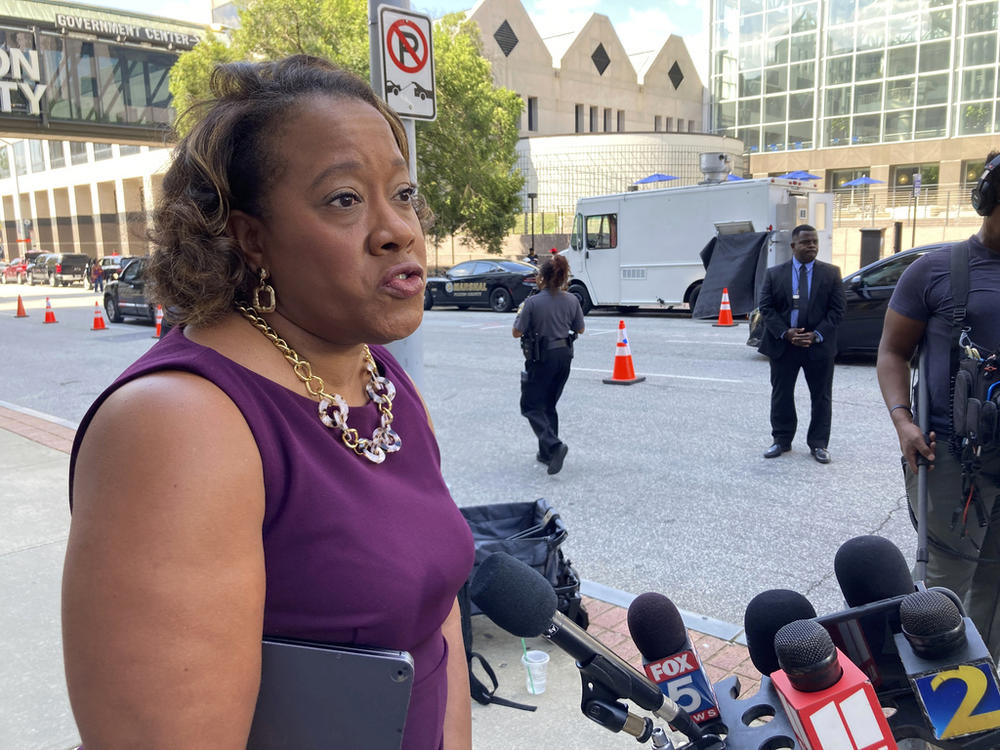
Caption
DeKalb County District Attorney Sherry Boston speaks to reporters Friday, Sept. 22, 2023, outside the Fulton County Courthouse in Atlanta. Boston is one of four Georgia district attorneys who sued to overturn a law that lets a new commission to discipline and remove prosecutors. A Fulton County judge heard arguments over whether she should freeze the law.
Credit: AP Photo/Jeff Amy

